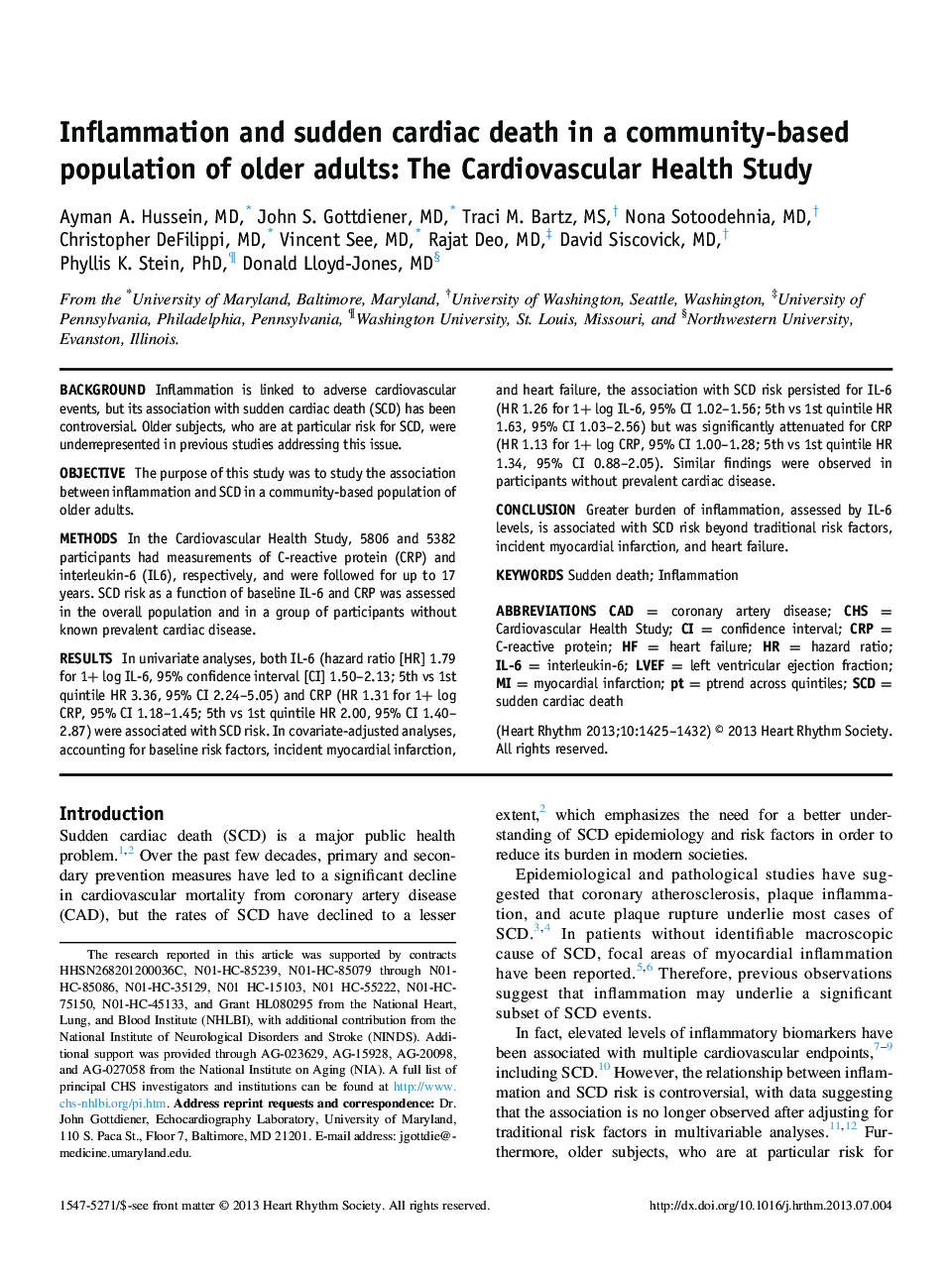| Article ID | Journal | Published Year | Pages | File Type |
|---|---|---|---|---|
| 2922060 | Heart Rhythm | 2013 | 8 Pages |
BackgroundInflammation is linked to adverse cardiovascular events, but its association with sudden cardiac death (SCD) has been controversial. Older subjects, who are at particular risk for SCD, were underrepresented in previous studies addressing this issue.ObjectiveThe purpose of this study was to study the association between inflammation and SCD in a community-based population of older adults.MethodsIn the Cardiovascular Health Study, 5806 and 5382 participants had measurements of C-reactive protein (CRP) and interleukin-6 (IL6), respectively, and were followed for up to 17 years. SCD risk as a function of baseline IL-6 and CRP was assessed in the overall population and in a group of participants without known prevalent cardiac disease.ResultsIn univariate analyses, both IL-6 (hazard ratio [HR] 1.79 for 1+ log IL-6, 95% confidence interval [CI] 1.50–2.13; 5th vs 1st quintile HR 3.36, 95% CI 2.24–5.05) and CRP (HR 1.31 for 1+ log CRP, 95% CI 1.18–1.45; 5th vs 1st quintile HR 2.00, 95% CI 1.40–2.87) were associated with SCD risk. In covariate-adjusted analyses, accounting for baseline risk factors, incident myocardial infarction, and heart failure, the association with SCD risk persisted for IL-6 (HR 1.26 for 1+ log IL-6, 95% CI 1.02–1.56; 5th vs 1st quintile HR 1.63, 95% CI 1.03–2.56) but was significantly attenuated for CRP (HR 1.13 for 1+ log CRP, 95% CI 1.00–1.28; 5th vs 1st quintile HR 1.34, 95% CI 0.88–2.05). Similar findings were observed in participants without prevalent cardiac disease.ConclusionGreater burden of inflammation, assessed by IL-6 levels, is associated with SCD risk beyond traditional risk factors, incident myocardial infarction, and heart failure.
